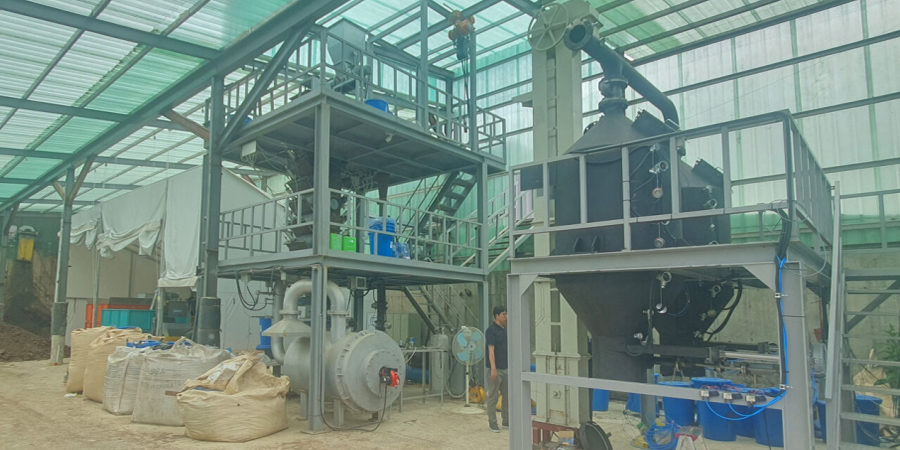May 8, 2024
South Korean laboratory creates process to immediately turn animal manure into biochar

A research team from the Clean Air Research Laboratory of the Korea Institute of Energy Research (KIER) has developed a process that immediately converts livestock manure into biochar (biomass and charcoal) at livestock farms.
Using the process developed by the research team, it is possible to convert 10 tonnes of livestock manure into biochar in a single day.
As of 2022, the amount of livestock manure produced was about 50 million tonnes, of which 87% is used as compost and liquid fertiliser after being fermented over a long period. However, during this long treatment process, which can last more than 60 days, nitrous oxide (N2O), a greenhouse gas 300 times stronger than carbon dioxide, is emitted.
Additionally, ammonia (NH3), which causes ultrafine dust and odors, is also released, accounting for 70% of the total emissions in South Korea. This has led to persistent odor complaints, becoming a chronic problem for livestock farmers.
Biochar is gaining attention as an alternative solution to overcome these issues. Converting livestock manure into biochar not only completely prevents the emission of nitrous oxide and ammonia but also absorbs carbon from the air and can sequester it, making it a viable means to achieve carbon neutrality in the livestock sector.
Consequently, the South Korean government has designated biochar as a core technology area for carbon neutrality in the livestock sector and plans to expand the use of biochar and improve manure management in livestock farms through the "Livestock Sector 2030 Greenhouse Gas Reduction and Green Growth Strategy".
The core of the Manure To Biochar (MTB) process developed by the research team is a dehydration and drying technology that reduces the moisture content in livestock manure, which is over 80%, to less than 20%.
The research team successfully designed and built an integrated system that combines the drying process owned by KIER, the dehydration process from the Korea Institute of Machinery and Materials (KIMM), the pretreatment process from DULI TECH Co., Ltd., and the pyrolysis technology from YOUGI IND Co., Ltd. to achieve optimal performance. Using this, the overall energy consumption can be significantly reduced to less than one-tenth compared to the conventional rotary kiln method.
The process begins with a screw-type solid-liquid separator developed by the KIMM. This separator reduces the moisture content in livestock manure, which is over 80%, to less than 60%. The energy used in this step is minimised to 1% of that used in conventional heat-based processes like the rotary kiln method (horizontal, cylindrical). The separated manure chunks are then finely crushed to less than 1cm in size by a three-stage blade crusher developed by DULI TECH Co., Ltd.
This process has been demonstrated at a pilot site in Cheongyang County, Chungnam, capable of handling 10 tonnes of livestock manure per day. The research team completed 100 hours of process operation, proving its commercial viability. In particular, the F-COMB drying device developed by KIER is highly competitive in terms of energy efficiency, production cost and convenience.
Plans are in place to scale up to more than 100 tonnes per day to meet domestic demand as well as international demand from China, Australia and Indonesia, who are pushing for environmentally friendly waste management and recycling.
- National Research Council of Science and Technology










